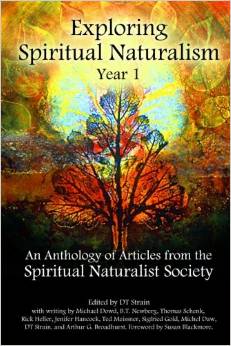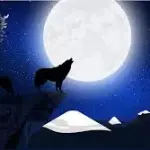 For most, the term ‘spirituality’ evokes the supernatural, such as the afterlife, God, prayer, and so on. But some who aren’t believers in those things are, nonetheless, taking spiritual practices head on. A new book gives a sweeping panorama of what practitioners call Spiritual Naturalism. “Exploring Spiritual Naturalism, Year 1 is an anthology of articles from the first year of the Spiritual Naturalist Society (http://www.spiritualnaturalistsociety.org) and is available at Amazon.com and Barnes & Noble online.
For most, the term ‘spirituality’ evokes the supernatural, such as the afterlife, God, prayer, and so on. But some who aren’t believers in those things are, nonetheless, taking spiritual practices head on. A new book gives a sweeping panorama of what practitioners call Spiritual Naturalism. “Exploring Spiritual Naturalism, Year 1 is an anthology of articles from the first year of the Spiritual Naturalist Society (http://www.spiritualnaturalistsociety.org) and is available at Amazon.com and Barnes & Noble online.
While many might call them atheists, the organization’s executive director, Daniel Strain, says, “I think you’ll find that most Spiritual Naturalists aren’t like the atheists commonly found in the media and encountered in online forums. Our aim is to be compassionate, mindful, and humble. Our practice involves cultivating these qualities in ourselves.”
But how can there be a spirituality without, well… spirits? Strain explains, “The root of spirituality comes from the Latin spiritus which meant wind or breath – the essence of something, so it’s actually a much broader term. It’s like calling all tissue Kleenex or referring to all soft drinks as Coke. The supernatural religions are simply the dominant brand.”
There are still leftover artifacts of that broader meaning in our language today, Strain points out. For example, we still talk about ‘school spirit’ or ‘the spirit of the law’ without meaning anything supernatural. “Therefore, the spirit of a thing is the essence of a thing. For us, spirituality is about the essential things in life, as opposed to the mundane or profane.”
If you believe in God and salvation, then those will be what you find to be ‘the essential’ things. But what about these Spiritual Naturalists? The organization, now in its second year, wanted to make clear they are talking about something much deeper than merely atheists meditating.” Strain says, “We are talking about a full and rich spiritual practice inspired by the wisdom from a variety of traditions, philosophies, and religions, as well as a respect for the natural universe as revealed by science. Naturalistic practices like these have existed in the past, such as with the Stoics who were materialists, and even some schools of Buddhism, as the Buddha specifically discouraged speculation about the supernatural and things beyond our experience, in favor of a more practical approach that sought to address suffering here and now. We want to reunite the natural universe and that sense of the sacred.”
There have been seminal works in religious and spiritual naturalism before, but the Society’s book takes the next steps in applied naturalistic spirituality. Arranged by theme, its articles address how science fits in, advice on practice and ritual, handling tough times, applied issues, and their take on a variety of religions and philosophies. Rather than talk about what not to believe in, Exploring Spiritual Naturalism describes comprehensive life paths for flourishing. As Strain puts it, “These practices are nothing less than a path to freedom from fear and the bonds of circumstance as a condition for happiness.”
Readers can get the book at these links:
Amazon.com
http://www.amazon.com/Exploring-Spiritual-Naturalism-Year-Naturalist/dp/1304435164
Barnesandnoble.com
http://www.barnesandnoble.com/w/exploring-spiritual-naturalism-year-1-dt-strain/1119998359
Subscribe to The Spiritual Naturalist Society
Learn about Membership in the Spiritual Naturalist Society
__________
The Spiritual Naturalist Society works to spread awareness of spiritual naturalism as a way of life, develop its thought and practice, and help bring together like-minded practitioners in fellowship.












